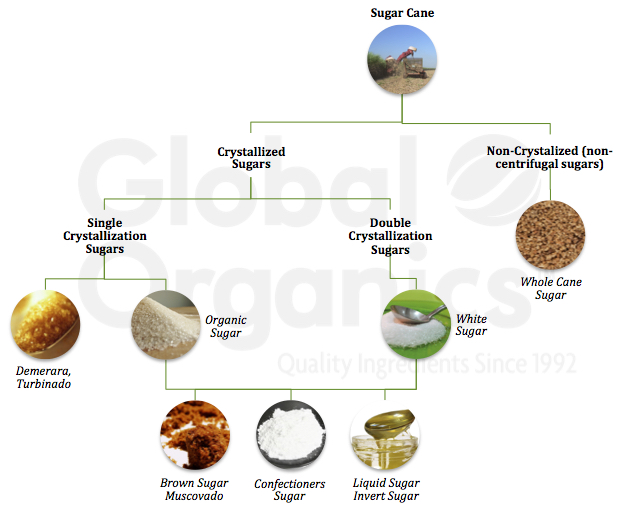Cane Sugar Processing: From Area to Table-- A Step-by-Step Guide
Cane Sugar Processing: From Area to Table-- A Step-by-Step Guide
Blog Article
A Detailed Review of the Health And Wellness and Economic Effects of Walking Cane Sugar Processing on Local Areas
Walking cane sugar processing plays a critical duty in forming the financial landscape of regional neighborhoods, using employment possibilities and promoting ancillary industries. The health ramifications associated with high sugar intake can not be overlooked, as they contribute to climbing rates of weight problems and diabetes.
Financial Benefits of Walking Stick Sugar Processing
Cane sugar processing supplies significant financial advantages that expand beyond the prompt farming sector. The farming and processing of sugarcane develop many work possibilities, from farming to manufacturing and distribution. This employment generation not just supports regional economic situations but additionally fosters neighborhood growth by giving secure revenue sources for family members.
Moreover, the sugar industry promotes ancillary businesses, including transport, devices supply, and packaging solutions (Cane Sugar Processing). As these industries grow, they contribute to a much more robust financial structure, enhancing overall community durability. The export potential of refined walking stick sugar additionally intensifies economic benefits, placing regions as competitive players in global markets
Investment in modern-day handling facilities can bring about enhanced efficiency and efficiency, therefore decreasing waste and optimizing source use. This shift not only benefits the regional economic situation however also sustains sustainability efforts by minimizing environmental influences.
Moreover, the earnings produced from walking cane sugar handling can be reinvested in local framework, education, and health care, promoting all natural community development. On the whole, the economic benefits of walking cane sugar processing are diverse, offering a foundation for sustaining prosperity in farming regions.
Health And Wellness Risks Connected With Sugar Consumption
Excessive sugar intake positions considerable health risks that require severe attention. High intake of added sugars, especially from refined foods and drinks, has been connected to numerous health and wellness problems.
Moreover, high sugar usage is connected with cardiovascular condition. Raised blood glucose degrees can bring about insulin resistance, a forerunner to different heart-related issues. In addition, sugar can have destructive results on oral wellness, leading to dental caries and gum tissue illness, as microorganisms in the mouth flourish on sugar, producing acids that wear down tooth enamel.
Additionally, arising research recommends a possible web link between high sugar consumption and psychological health disorders, such as depression and anxiousness. As neighborhoods grapple with these wellness threats, it ends up being essential to advertise awareness and motivate much healthier nutritional options. Attending to sugar intake is important not only for individual health but also for the overall well-being of regional neighborhoods, emphasizing the need for thorough public wellness approaches.
Ecological Effects of Sugar Production
Frequently overlooked in conversations concerning sugar's ramifications is the substantial ecological effect of sugar manufacturing. The farming of sugarcane usually necessitates substantial land usage, causing logging, loss of biodiversity, and interruption of local communities. The conversion of woodlands and marshes into sugar plantations can lead to environment devastation, threatening many varieties and altering eco-friendly balance.
Moreover, sugar production is resource-intensive, consuming substantial quantities of water for irrigation. This can cause depletion of neighborhood water sources, adversely impacting both agricultural techniques and area access to tidy water. In addition, using chemical fertilizers and chemicals in sugarcane farming can add to dirt degradation and water contamination, as overflow from these chemicals enters neighboring rivers and lakes, influencing marine life and human health.
The environmental impact reaches the handling phase, where power intake and waste generation more aggravate eco-friendly worries. Air air pollution from shedding sugarcane fields, along with greenhouse gas discharges, add to environment modification. Therefore, the ecological implications of sugar manufacturing warrant serious factor to consider, urging stakeholders to adopt more sustainable practices to mitigate these negative effects on neighborhood ecosystems and areas.
Task Creation and Neighborhood Growth
The environmental obstacles postured by sugar production are often counterbalanced by its possibility for financial advantages, specifically in work development and community growth. The cane sugar market works as a substantial resource of employment in lots of country areas, providing jobs throughout various skill degrees, from agricultural labor to processing and circulation roles. This work not only sustains individual families yet likewise adds to the total economic vitality of local areas.
In addition, the establishment of sugar handling centers stimulates secondary businesses, such as transport services, equipment supply, and upkeep providers. As these companies grow, they develop extra work and boost neighborhood economies. The income generated from the sugar market also brings about raised tax profits, which can be reinvested into site social work such as framework, health care, and education development.
Moreover, the sugar market usually takes part in community advancement campaigns, such as supporting neighborhood schools and wellness programs, consequently enhancing the quality of life for residents. By fostering strong neighborhood ties and advertising financial development, the walking stick sugar handling industry plays an essential duty in uplifting neighborhood populaces, making it an important element of sustainable advancement approaches in sugar-producing areas.
Harmonizing Health And Wellness and Economic Development
In navigating the intricacies of walking stick sugar handling, a vital challenge lies in balancing health and wellness considerations with economic development. The sugar industry substantially adds to neighborhood economies by producing tasks, promoting associated industries, and increasing tax earnings. Nonetheless, the health effects related to too much sugar consumption can cause persistent diseases such as obesity, diabetic issues, and cardiovascular problems, which can concern public wellness systems and reduce labor force productivity.

Moreover, regulatory structures can play a critical duty in directing sector methods towards more health-conscious and sustainable approaches. By cultivating partnership in between federal government bodies, health and wellness companies, and the sugar market, communities can navigate the duality of health and financial growth, ensuring that the advantages of cane sugar handling are equitably shared while prioritizing public wellness.
Final Thought
To conclude, the handling of walking stick sugar offers both considerable financial benefits and notable wellness threats for regional areas. While it cultivates task development and stimulates regional development, the connected health and wellness issues, specifically concerning obesity and diabetes mellitus, require a cautious balancing act. By promoting liable usage and investing in area education and sustainable techniques, it is possible to make the most of financial advantages while minimizing damaging wellness results, thereby guaranteeing a healthier future for local populaces.
In addition, sugar can have find more info damaging impacts on oral wellness, resulting in cavities and gum tissue disease, as bacteria in the mouth prosper on sugar, creating acids that deteriorate tooth enamel.
Dealing with sugar intake is vital not only for private health yet likewise for the total wellness of regional areas, highlighting the need for comprehensive public wellness approaches.
Often forgotten in discussions about sugar's effects is the significant ecological effect of sugar manufacturing. The health ramifications linked with too much sugar usage can lead to persistent conditions Learn More such as obesity, diabetes, and cardiovascular concerns, which can problem public health and wellness systems and diminish workforce productivity.

Report this page